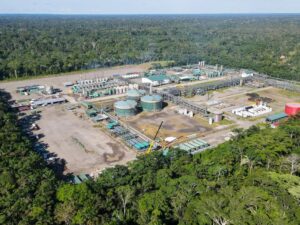Children exposed to cannabis in the womb may have poorer attention skills and be more prone to aggression at age 5 than children who are not exposed prenatally to cannabis, according to a report in JAMA Pediatrics. The associations observed in the study appeared to be directly related to cannabis exposure, not to the post-natal home environment.
“These outcomes are relevant to long-term academic and adaptive functioning,” wrote Sarah A. Keim, Ph.D., of Nationwide Children’s Hospital in Columbus, Ohio, and colleagues. “These results may be considered in refining clinical recommendations regarding cannabis use during pregnancy.”
Keim and colleagues looked at 250 children of families participating in the Lifestyle and Early Achievement in Families (LEAF) study cohort. The LEAF study included in-person visits at a behavioral research facility at Nationwide Children’s Hospital when the children were between 5 and 6 years of age.
Urine samples taken during mothers’ pregnancy were assayed for tetrahydrocannabinol (THC), the primary psychoactive component of cannabis. Children were considered exposed to cannabis if they had at least one urine specimen with THC higher than 15 ng/ml, their mother self-reported cannabis use on a questionnaire, or cannabis use was noted in the clinical obstetric record. Of the 250 children, 80 (32%) were classified as having been exposed to cannabis prenatally.
The researchers assessed the children’s executive function, such as attention, planning, and memory, at age 5 using a variety of validated measurements. They also assessed children’s aggression with the inflatable Bobo Doll task; the proportion of hits to the doll’s face using a fist was the measure of observed aggression. The children’s caregivers also filled out reports rating the child’s executive function and aggression.
Overall, children exposed to cannabis prenatally had lower test scores on attention and planning than those not exposed. Those exposed to cannabis prenatally also exhibited more aggressive behavior, with 17% more fisted hits to the doll’s face observed. (There were no differences between groups in caregiver ratings of executive function and behavior.)
The researchers noted that cannabis use during pregnancy is increasing in the United States, from 3.4% of pregnant people reporting past-month use in 2002 to 7.2% in 2021. “Many perceive the drug as a safe, natural treatment for nausea, sleep problems, or mood disorders,” they wrote. “Despite guidance from the American Academy of Pediatrics and others to avoid cannabis in pregnancy, many clinicians counsel patients inconsistently and lack knowledge about long-term effects.”
For related information, see the Psychiatric News article “Exposure to Alcohol, Cannabis in Womb Can Have Long-Term Consequences.”
(Image: Getty Images/iStock/Favor_of_God)
Source: https://alert.psychnews.org




